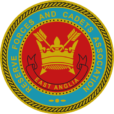The Reserves Continuous Attitude Survey (ResCAS) is a Tri-Service annual survey of volunteer reservists and is one of the main ways that the Defence Statistics (Surveys) department of the Ministry of Defence gathers information on the attitudes and experiences of volunteer reservists.
This survey of volunteer reserves covers satisfaction with various aspects of being a reservist. Overall, 5,731 responses were received from a sample of 17,281 reservists, representing a response rate of 33%, unchanged since 2017.
These statistics are used to inform the development of policy and measure the impact of decisions affecting reservists, such as those relating to the development of a modernised employment offer for the Armed Forces.
The main highlights from the report for the work of Reserve Forces and Cadets Associations are:
- The majority of reservists are satisfied with life in their Service, are proud to serve, and would recommend joining.
- Less reservists believe that their employer would prefer that they were not a reservist.
- More reservists feel their employer supports and values their reserve service, and feel that being a reservist is good for their civilian career.
The report includes insights on how positively the Regulars feel about the Reserves:
- Over half (58%) of trained Regular personnel report that the Reserves are well-integrated, an increase from 53% in 2017.
- 67% of Regulars rate the Reserves as professional,
- 65% rate the contribution of Reserves as valuable.
Reasons for joining and staying in the Reserves are consistent across the Services.
The top two reasons for joining the Reserves are: ‘to serve my country’ and ‘for the challenge’. One of the least chosen responses was ‘to develop my civilian career’. Of the 5% of reservists that intend to leave the Reserve in the next year, most said ‘poor management and leadership’ and ‘not feeling valued by the Service’ are the reasons that play a part in their decision, unchanged since 2015.
The survey results also provide some insight into the demographics of respondents, notably:
- 35% of reservists have been a member of a Service Cadet Force.
- 81% of reservists are employed (either full-time, part-time, or self-employed).
The full report, available here on GOV.UK, also gives a breakdown by Service and highlights differences in responses between Officers and other ranks.



